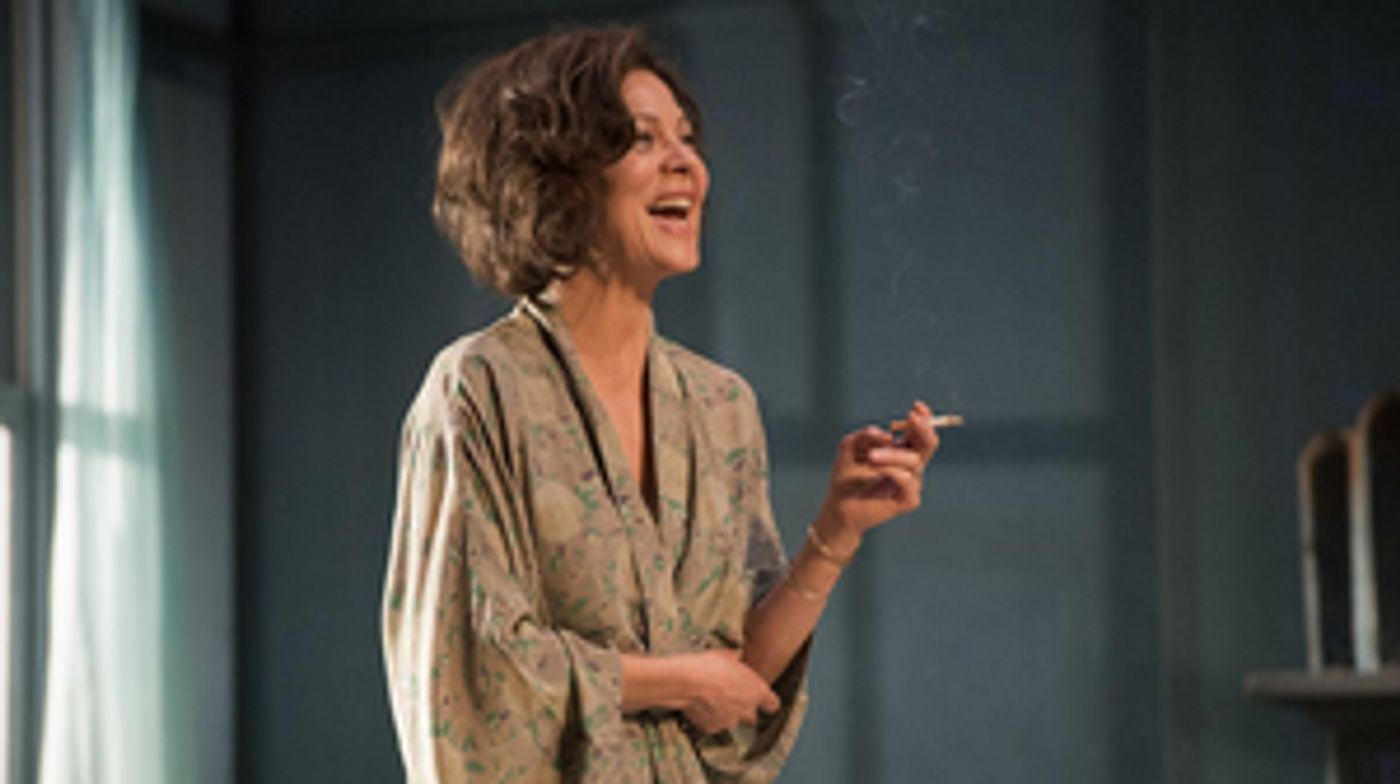Review: THE DEEP BLUE SEA, National Theatre At Home

![]() The latest NT at Home digital offering is Terence Rattigan's 1952 play The Deep Blue Sea, which was performed at The National Theatre in 2016. Directed by Carrie Cracknell and starring the indomitable Helen McCrory, this post-war microcosm bristles with desperate passion.
The latest NT at Home digital offering is Terence Rattigan's 1952 play The Deep Blue Sea, which was performed at The National Theatre in 2016. Directed by Carrie Cracknell and starring the indomitable Helen McCrory, this post-war microcosm bristles with desperate passion.
When Hester Collyer (McCrory) is found unconscious next to an open gas tap and with an empty bottle of aspirin tablets, the worst is assumed. But after her neighbours save her, Hester continues on her quiet quest of self-destruction as she is visited by her ex-husband, William Collyer (Peter Sullivan), and her current partner, former flyboy Freddie Page (Tom Burke).
The spark that ignited Hester's action is simple: Freddie missed her birthday. Yet Cracknell's direction manages to emphasise Hester's solitary existence in spite of being surrounded by people. As the second act begins and the various tenants of the accommodation block enter one by one, there is a distinct feeling that none of them can help.
In Rattigan's world, love walks in and out of the door with painful simplicity. Cracknell ensures that audiences recognise Hester's trapped situation, stuck between a desire for stability and for living a life that's exciting and passionate. Though, vitally, both seem unattainable throughout this production. Truly, Hester is caught between the devil and the deep blue sea.
Added to this is McCrory's superb performance of a woman who had rolled the dice only for them to fall off the table. Speaking incredibly fast, the impression is not so much of a mind unravelling but of an innate desire to be listened to. Other performances, such as the suave Sullivan and Page's posh mask, blur the boundaries of Hester's choices.
Tom Scutt's set offers a skeletal apartment block clothed lightly, with the tenants appearing almost as ghosts as they come to the front door of Hester's flat. The impossibly high ceilings add a distorted tone to the space, especially the window at the top of the flat through which a gentle breeze ruffles the curtains for the majority of the production.
The Deep Blue Sea paints an image of post-war Britain fuelled by alcohol and a desire for, as Freddie puts it, "delicious oblivion". Rattigan's script also appears to represent a fledgling awareness of mental health: "I seem to have become the embodiment of his conscience" remarks disgraced doctor Mr Miller (a subtle Nick Fletcher) of Freddie. With this, along with Scutt's set, the piece implies a nation of people damaged not physically but mentally.
This recording, with screen direction by Matthew Amos, is also brilliant, balancing close shots with wider ones to constantly emphasise Hester's distance from those who surround her. Moments when she touches others, therefore, feel real and unnatural.
This is a captivating production. Freddie remarks at the play's end that "it's never too late to begin again". This is not a post-war world of hope, but one of drunken nihilism and solitary wanderings into the darkness. For Rattigan's characters, living means to be surrounded by people and to feel alone, and to exist in a room with a window too high to either see out of or shut to keep the cold at bay.
The Deep Blue Sea is streaming until 16 July
Production credit: Richard Hubert Smith
Reader Reviews
Videos


